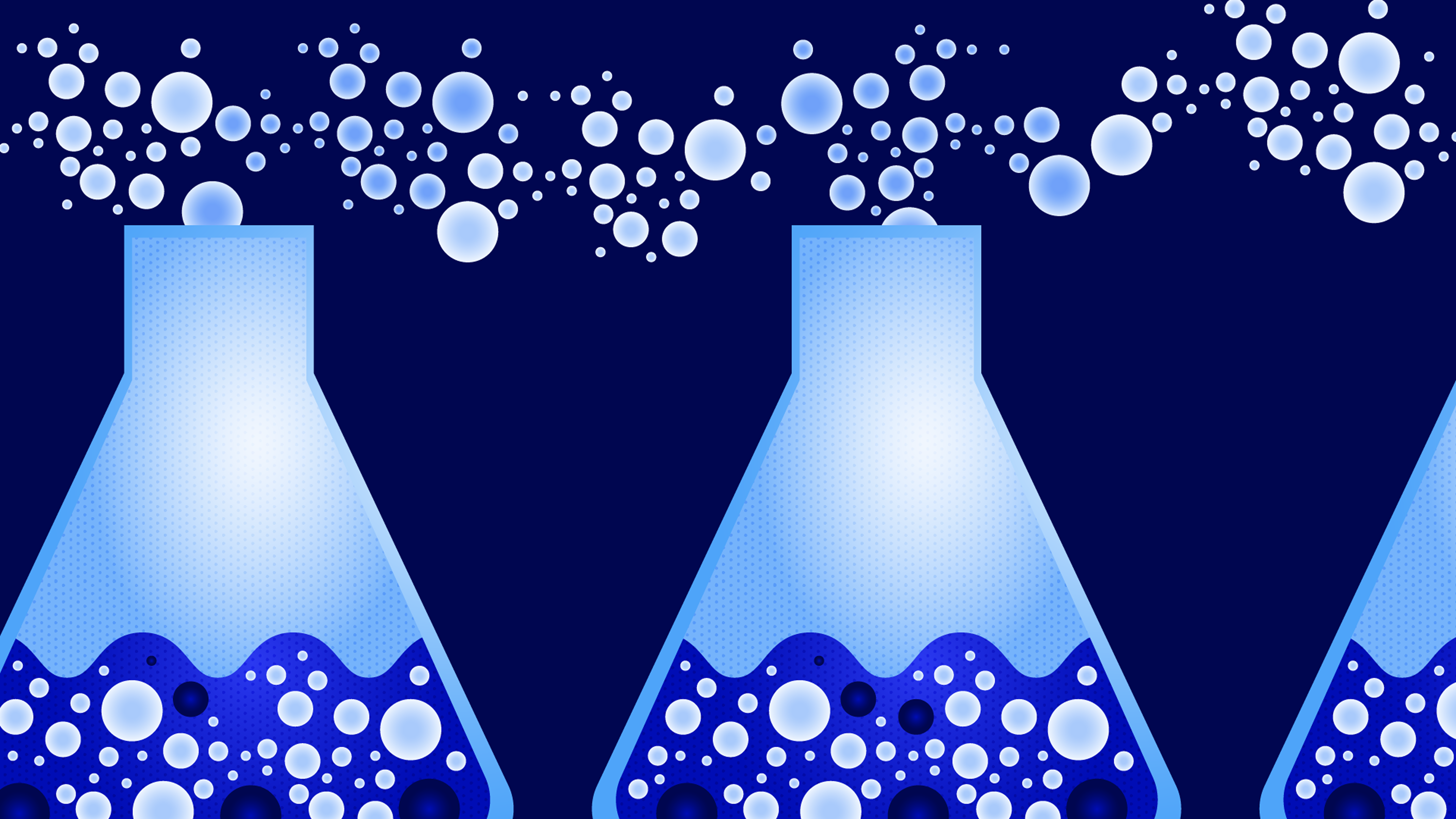Introducing Benchling Biologics: An end-to-end solution for AI-powered antibody discovery
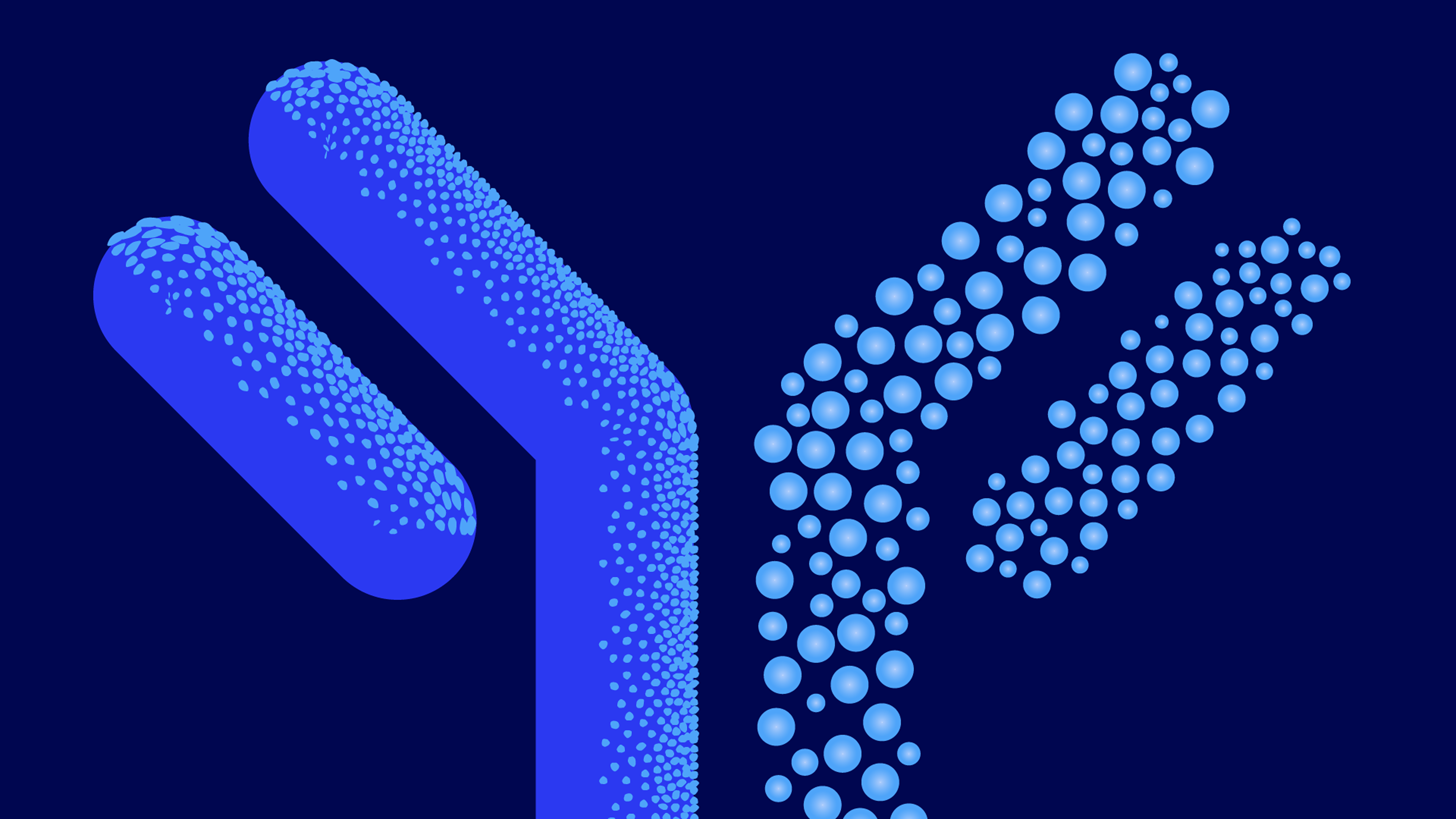
Antibody discovery has never been more dynamic — or more demanding. Molecules are more complex, datasets are exploding, and the line between wet and dry labs is disappearing. But while sequencing, automation, and AI are transforming what’s possible, most teams still rely on disconnected systems that can’t keep pace with the speed and complexity of modern biologics research. Wet lab teams need intelligent, purpose-built solutions to design, make, and test proteins. Dry lab teams need contextual, clean data to learn from experiments and build more advanced AI models.
At Benchtalk 2025, we shared how Benchling is helping close that gap. We’re introducing Benchling Biologics: our end-to-end approach to unifying biologics discovery. It brings together structured data, connected teams, and intelligent tools to help scientists move faster from design to insight. With PipeBio, Benchling Bioresearch, and the upcoming Biologics Registry, we’re creating one integrated solution for AI-enhanced antibody discovery.
The complexity of today’s biologics calls for a new solution
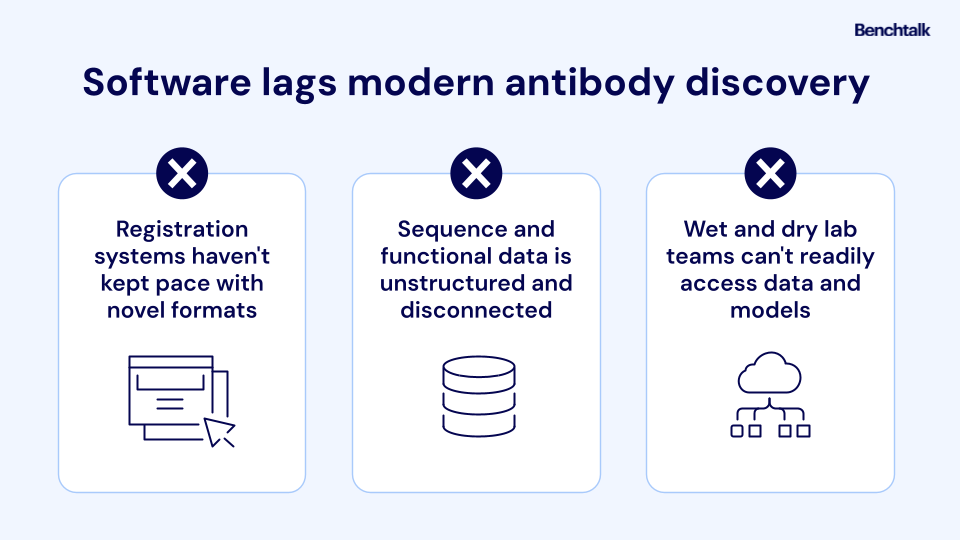
The number of antibody formats are exploding; rather than building only traditional and simple formats, like IgGs, Fabs, and scFvs, biologics teams are rapidly designing novel multi-specifics, fusion proteins, and beyond. The result is that proteins — a biologics team's core scientific IP — are captured incompletely, inconsistently, and without context. Up and downstream of capturing proteins, teams also face a high volume of sequence, assay, and predictive data that’s difficult to manage. Today, many teams still store data in unstructured spreadsheets or siloed systems, with little connectivity between registration, experimentation, and analysis.
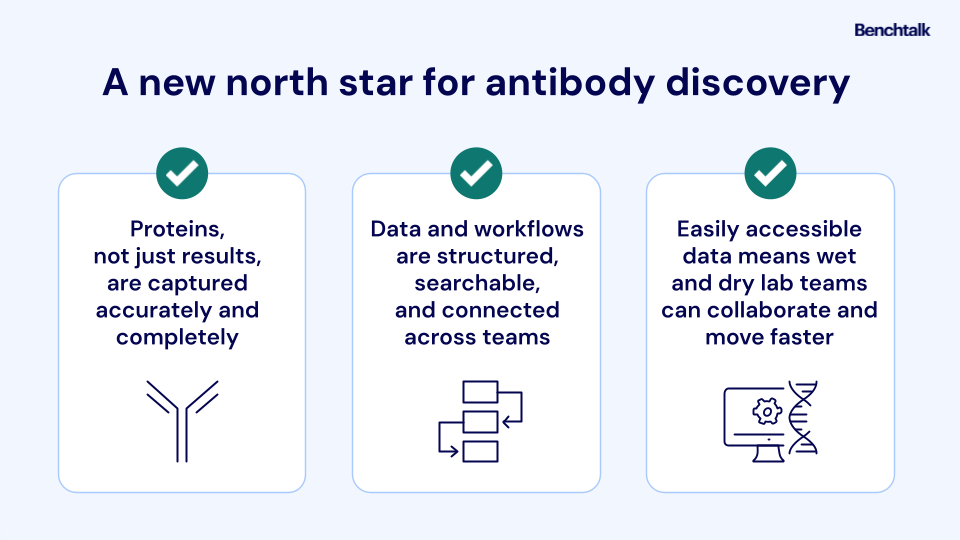
For Benchling, the future of biologics isn’t just about organizing data but also giving scientists the tools to do it effortlessly. By making sequence, functional, and predictive data accessible and connected, we’re helping teams collaborate across the biologics lifecycle and use AI to design better drugs, faster.
Accelerate hit discovery with PipeBio
Now available, PipeBio helps scientists process, annotate, and analyze high-throughput sequence data, allowing them to identify, characterize, and select antibody and protein hits faster. With tools for sequence visualization, clustering, structure prediction, and developability assessment, teams can pinpoint promising candidates and move quickly to experimental validation.
PipeBio connects seamlessly with Benchling Bioresearch, so once hits are identified, they can be sent directly into Benchling with full traceability. No manual exports. No loss of context. The data stays connected from sequence to experiment, enabling a true design–make–test–learn (DMTL) loop.
Closing the loop between wet and dry labs
Benchling Bioresearch serves as the bridge between computational design and experimental science. In Benchling, scientists can design their experiments in silico and then capture what they've done at the bench — from cloning to protein expression and purification to assays — and aggregate data for downstream analysis all within one shared environment.
Together, Benchling Bioresearch and PipeBio create a continuous feedback loop.Computational scientists can analyze sequences and send optimized variants to the wet lab. Experimental scientists can generate structured, assay-ready data and push results back for model refinement. It’s the connective tissue that transforms data into insight.
A first look at the Biologics Registry
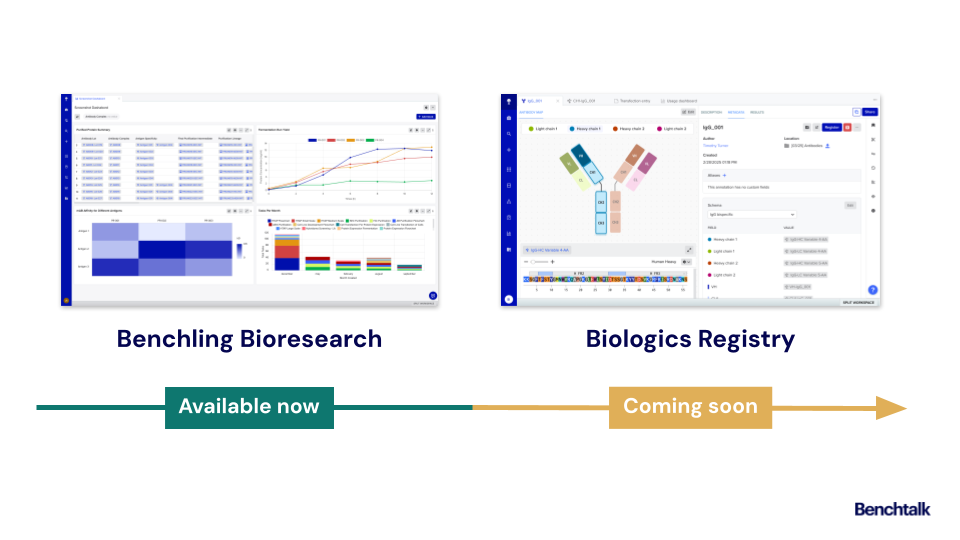
Coming next year, we’re previewing a major step forward, the Biologics Registry, an add-on to Benchling Bioresearch built specifically for antibody and complex biologics R&D.
The Biologics Registry introduces an antibody-aware data model, custom formats, and intelligent registration tools that allow teams to rapidly capture, characterize, and visualize the full diversity of their proteins. Scientists will be able to register antibodies of any format, with ordered domains assembled into chains, and capture metadata at the domain level for richer analysis and AI-readiness.
This capability helps teams manage the complexity of modern biologics by creating a shared language across formats and enabling consistent, structured data capture that supports both discovery and model training.
The future of biologics is connected
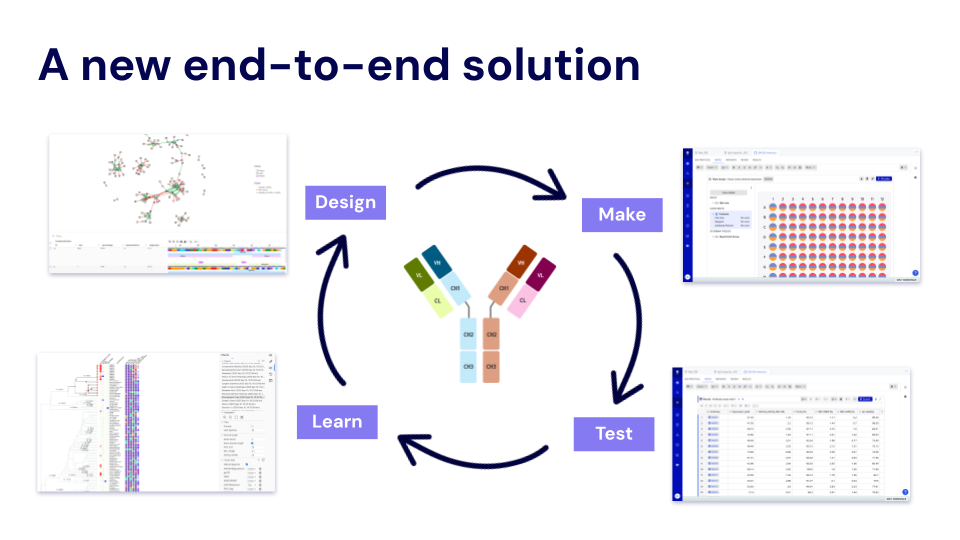
With PipeBio, Benchling Bioresearch, and the upcoming Biologics Registry, Benchling is creating a unified, AI-powered platform for the future of antibody discovery. From raw sequence data to experimental studies and process development, scientists can now trace the full lineage of their molecules, connect insights across teams, and apply AI at every step of biologics R&D — turning the explosion of data into the next generation of therapies.


